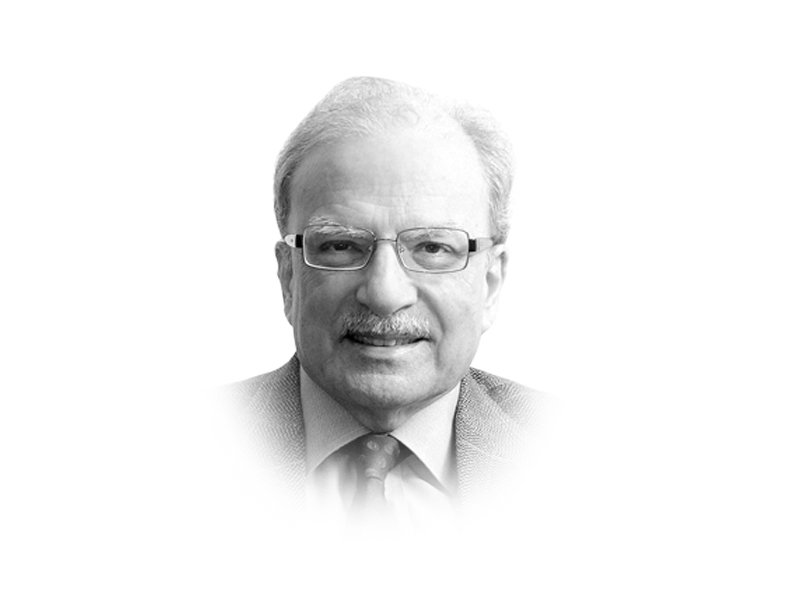
While the Karachi port has been developed well, it is the city’s location on the map of international air routes that has not been exploited. This is another case of a missed opportunity. When long-distance air travel became commercially viable, Karachi turned into an important stopping point for several airlines operating out of Europe and the US. It lost that advantage to cities such as Dubai and Doha that were nowhere on the map when Karachi was already an important airport to call on for several Western companies. Now, Karachi is just one of the many links the Middle Eastern airports have developed with near and distant destinations. It was the adoption of wrong public policies that lost Karachi this comparative advantage. But this was not the only missed opportunity.
I will discuss two more. One of these had to do with the Pakistan International Airlines (PIA) whose advertisements once use to boast that they were “great people to fly with”. In the 1970s, the airline earned a reputation for efficiency and good service. It was engaged by what are now some of the 21st century’s more developed Asian and Middle Eastern airlines to get them started. The PIA now has deteriorated to the point that in 2013, its very existence as a separate entity is threatened. It now has the highest ratio of employees per plane, the result of having been used — along with several other state-owned enterprises — as the employer of first resort for the political workers of the parties in power. The Pakistan Steel Mills at Karachi is one other public enterprise that has suffered the same fate as PIA’s.
The Partition of British India and its human consequences produced for Karachi another endowment. The exchange of population between India and Pakistan in the few months around that time brought millions of well-educated Muslims from the urban areas of British India. For more than a decade, these migrants provided the human resource base for the development of the state in Pakistan. That changed with the decision by president Ayub Khan to move the country’s capital to Islamabad. But another type of human resource continued to lend support to Karachi’s sharp development as the financial and commercial centre of the country. During the presidency of Ayub Khan, the Karachi-based banking sector developed rapidly. Several private sector commercial banks developed links with the Middle East and Britain. This process would have continued had it not been interrupted by the ill-conceived nationalisation of banking and insurance by the administration headed by prime minister Zulfikar Ali Bhutto. It was during the Bhutto period that the Middle East went through its first economic boom. Had the banking industry remained with the private sector, it would have enlarged its Middle Eastern operations with Karachi becoming an important regional financial hub for the region. Instead, the financial industry moved in the other direction with the young Middle Eastern banking industry developing a base in Pakistan by acquiring some of the assets that were to be privatised in the 1990s at bargain-basement prices.
Karachi’s mixed ethnicity offers the greatest challenge for the development of Pakistan’s largest city. It can only make the contribution its location and human resource endowment can make to the country’s economic advance if the structure of city politics is developed in a way that it provides the means to settle inter-ethnic disputes. Karachi will remain a troubled and violent city for as long as a new and inclusive political order does not get developed. It will also remain a magnet for the people that will undoubtedly be displaced by the struggle in the tribal areas following the winding down of the American involvement in Afghanistan. This new influx of migrants to the city needs to be anticipated with a view to their economic and political absorption.
Published in The Express Tribune, January 14th, 2013.
COMMENTS (12)
Comments are moderated and generally will be posted if they are on-topic and not abusive.
For more information, please see our Comments FAQ

1732530816-0/BeFunky-collage-(88)1732530816-0-165x106.webp)
1720848500-0/Eminem-and-his-daugher-Hallie-(1)1720848500-0-165x106.webp)









Sabeer Bhatia the founder of hotmail is a Sindhi.
@Raja Islam
I agree with most of what you have stated. The two communities are very different. The refugees were unwilling to mingle with Muslim Sindhis as they viewed them as uncouth, while were unable to let go of their religious bias to mingle with the Hindu Sindhis. Atleast the Sindhis of India are successful, and their achievements make me proud of my cultural heritage.
@Samo: Agreed. Let us put religion aside for a while and see the picture without muddying the waters. Sindh lost a lot of talented Sindhis after partition. The Sindhi's were replaced by non-Sindhis who did not share the culture and the love of the land with Sindhis. Sindhis, became a minority in their own cities and were looked down upon by the refugees who took control of the bureaucracy of Pakistan. Karachi and Hyderabad were converted into large slums with the control of the cities going into the hands of gangsters and mafias.
Anyone heard of the Hinduja Group? Started by a Shikarpuri. They had revenues of $25 billion last year. The Muslims who arrived here are an abysmal replacement of the Hindus we lost. And the fact that the only justification they can offer is that they helped us, the Muslim Sindhis, to remove our 'shackles', shows their mindset: they cannot offer any justification and are angry. Opportunistic vultures with whom we are now stuck.
As @A Sheikh said, when a city is wealthy it attracts all sorts. The migrants may not care for it as much as the actual natives, which is primarily one of the reasons Karachi is the way it is: gangland territory, comprised almost entirely of slums.
When a city becomes weathly all the micreants migrate there. They lack civilized ways . They are like vampires they suck the blood of the city. They take but don't give. This seals the citys destruction. You see it in London. In New York. And Karachi
A commercial center without a mass transit system Welcome to Karachi
I think partition offered muslims of Sindh a wonderfull opportunity .. as it was hindus who were educated, prosperous and into trade and commerce .. Muslims on the other hand were overwhelmingly un educated and poor, except for handful of land lords .. someone was telling me that Muslims were not even allowed to step into Lajpat Road of Hyderabad ! .. similarly only those areas of Sindh were developed where hindus were in majority, for example shikarpur and Sukkur .. so it offered an opportunity to muslims of sindh to break shackles and have a go at the opportunities .. and i dont agree that Sindh was very prosperous .. i think sindh was never extraordinarily prosperous .. majority of the population continue to live in extreme poverty .. since centuries !!
The hindus living in sindh had much more of entrepreneurial skills then the muslims who migrated from india, hindus are currently running their businesses all around the world with much more success. There was another aspect of the migration as well, the political tendencies of the newly migrated muslims, in most of the metropolitan cities of Pakistan there has been very less violent politics compared to what we have seen in karachi. This has a lot of resemblance with Mumbai. So we can not say that this part of sub continent had no talents before partition, as sindh has its own history of being prosperous throughout the history because of its land and water resources. It was the failure of subsequent governments which could not keep with the pace of the world and that too because of violent politics in Karachi.
Pakistan is the real land of opportunity...and unfortunately will remain in the same shape for a long time
Karachi remains the trade hub (import,export), the banking hub, the media hub, the travel hub of the country. one way to lessen the risk would be to reduce this concentration. Hence two banks moved to Lahore. Gwadar, had it developed, would have reduced the trade burden on the city. Redundancy in infrastructure and availability of alternates would certainly help cool the temperature in Karachi.
Pakistan should make state airline private. Sell 40 % share to investors. This is the way of saving state airline. Not buying new air crafts & living on the edge.
If government stop nationalize & stop corruption. Pakistan could achieve great prosperity. If we can collect taxes from wealthy.
When we care about ourselves more than our state. The world also see our achievement, they will reward us on how well we have managed our state.
"The Partition of British India and its human consequences produced for Karachi another endowment." Not sure about this. Thanks to partition Karachi lost its most entrepreneurial talent, the Sindhi Hindus, who went on to prosper in India and Hong Kong, creating wealth and jobs wherever they went. The "millions of well-educated Muslims from the urban areas of British India" although useful in many ways, were hardly a worthy replacement of the entrepreneurial talent that left.